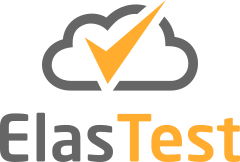Copyright © 2017-2019 . Licensed under Apache 2.0 License.
EDM is the ElasTest component providing persistence services to the ElasTest platform.
The persistent services under the responsibility of EDM are the following:
- Relational database (MySQL)
- Persistence control service (API-including Alluxio, S3 & HDFS compatible.)
- ElasticSearch (for both logs and metrics)
- API for exporting and importing data
- Web-based file manager in order to visually manage data.
- Install Docker Compose: https://docs.docker.com/compose/install/
- Install Git: https://www.atlassian.com/git/tutorials/install-git
- Install curl: https://curl.haxx.se/ (Optional - in order to follow some of the examples)
# Clone the project to your system
# Alternatively, you can download the zip file from Github and unzip it
git clone https://github.com/elastest/elastest-data-manager.git
# Change working directory to main project folder
cd elastest-data-manager
# From main project folder
# Make scripts executable (Linux, OSX)
chmod +x bin/*
Notes for OSX users:
First, you have to follow the instructions at https://www.elastic.co/guide/en/elasticsearch/reference/current/docker.html#docker-cli-run-prod-mode to increase vm.max_map_count to 262144.
Also you have to make sure that Docker has enough memory available to it. In Docker for Mac, you can increase memory by going to Preferences -> Advanced and move the Memory slider up.
Notes for Windows users:
If using Windows you should run commands/scripts below from Windows PowerShell.
Also you have to make sure that Docker has enough memory available to it. In Docker for Windows, you can increase memory by going to Preferences -> Advanced and move the Memory slider up.
Note: your terminal need to be in the main project folder where the docker-compose.yml is located.
You can start this image using docker-compose. It will start the following:
- One HDFS namenode
- One HDFS datanode
- One Alluxio master
- One Alluxio worker
- An Elasticsearch cluster (with two nodes)
- A Cerebro instance (web tool for monitoring and administering the Elasticsearch cluster )
- A Kibana instance
- A MySQL instance
You have the possibility to scale the number of HDFS datanodes, Alluxio workers and Elasticsearch nodes.
# From main project folder
# Start component (Linux, OSX)
bin/startup-linux.sh
# Start component (Windows)
bin/startup-windows.ps1
# View service status
docker-compose -p edm ps
# View logs
docker-compose -p edm logs
Please note that it will take some time (in the order of several seconds - depending on your system) for all the services to be fully available.
Also note that if you are in a Linux host, you need to set vm.max_map_count of the host to at least 262144 in order to run the Elasticsearch container. (more info at https://www.elastic.co/guide/en/elasticsearch/reference/current/docker.html#docker-cli-run-prod-mode). If you use the above startup-linux.sh script you don't have to do anything extra since it already contains code to do this. However, in order to be able to change your system settings, the script will prompt you for your sudo password.
The tests can be run as follows:
# From main project folder
# Run the tests
bin/run-tests.sh
The output should be a list of tests with status ok.
The following Linux scripts load some test data in the system:
# From main project folder
# Load test data to MySQL
bin/load-mysql-test.sh
# Load test data to Elasticsearch
bin/load-es-test.sh
# Load test data to Alluxio
bin/load-alluxio-test.sh
You can verify the data is loaded using the web or client interfaces of each system.
Each component provide its own web UI. Open you browser at one of the URLs below, where dockerhost is the name / IP of the host running the docker daemon. If using Linux, this is the IP of your linux box. If using OSX or Windows (via Boot2docker), you can find out your docker host by typing boot2docker ip.
| Component | Port |
|---|---|
| HDFS NameNode | http://localhost:50070 |
| Alluxio Web Interface | http://localhost:19999 |
| Kibana Web Interface | http://localhost:5601 |
| Cerebro Web Interface | http://localhost:9400/#/overview?host=http:%2F%2Felasticsearch:9200 |
| REST API Swagger UI | http://localhost:8000/edm |
| CloudCommander UI | http://localhost:8001 |
If you want to increase the number of HDFS datanodes in your cluster
docker-compose -p edm scale hdfs-datanode=
If you want to increase the number of Alluxio workers in your cluster
docker-compose -p edm scale alluxio-worker=<number of instances>
To allow worker instances (such as the hdfs-datanode, the alluxio-worker or the esnode) to scale, we need to let docker decide the port used on the host machine.
For example, to find the port for the hdfs-datanode:
docker-compose -p edm port hdfs-datanode 50075
With this port, you can access the web interfaces of the datanode.
The Alluxio REST API is available at http://localhost:39999
You can try the following examples:
# From main project folder
# Upload file (local)
curl -v -X POST http://localhost:39999/api/v1/paths//LICENSE/create-file
curl -v -X POST http://localhost:39999/api/v1/streams/1/write --data-binary @LICENSE -H "Content-Type: application/octet-stream"
curl -v -X POST http://localhost:39999/api/v1/streams/1/close
# Upload file (HDFS)
curl -v -X POST http://localhost:39999/api/v1/paths//hdfs/LICENSE/create-file
curl -v -X POST http://localhost:39999/api/v1/streams/2/write --data-binary @LICENSE -H "Content-Type: application/octet-stream"
curl -v -X POST http://localhost:39999/api/v1/streams/2/close
# Read file (local)
curl -v -X POST http://localhost:39999/api/v1/paths//LICENSE/open-file
curl -v -X POST http://localhost:39999/api/v1/streams/3/read
curl -v -X POST http://localhost:39999/api/v1/streams/3/close
# Read file (HDFS)
curl -v -X POST http://localhost:39999/api/v1/paths//hdfs/LICENSE/open-file
curl -v -X POST http://localhost:39999/api/v1/streams/4/read
curl -v -X POST http://localhost:39999/api/v1/streams/4/close
# Delete file (local)
curl -v -X POST http://localhost:39999/api/v1/paths//LICENSE/delete
# Delete file (HDFS)
curl -v -X POST http://localhost:39999/api/v1/paths//hdfs/LICENSE/delete
Elasticsearch is listening at localhost:9200 if you want to access it with your own client interface. For example you can install the ElasticSearch Toolbox Chrome plugin https://chrome.google.com/webstore/detail/elasticsearch-toolbox/focdbmjgdonlpdknobfghplhmafpgfbp).
You can also connect to it and run queries through the provided Cerebro Web Interface. In order to connect to Elasticsearch from Cerebro use hostname: elasticsearch and port: 9200
MySQL Server is listening at localhost:3306.
You can connect to it with user: elastest and password: elastest
A database elastest is already created and you can use it for your schemas.
# From main project folder
# Teardown component (Linux, OSX)
bin/teardown-linux.sh
# Teardown component (Windows)
bin/teardown-windows.ps1
This repository is part of ElasTest, which is a flexible open source testing platform aimed to simplify the end-to-end testing processes for different types of applications, including web and mobile, among others.
The objective of ElasTest is to provide advance testing capabilities aimed to increase the scalability, robustness, security and quality of experience of large distributed systems. All in all, ElasTest will make any software development team capable of delivering software faster and with fewer defects.
The ElasTest project provides detailed documentation including tutorials, installation and development guide.
Source code for other ElasTest projects can be found in the GitHub ElasTest Group.
Check the ElasTest Blog and follow us on Twitter @elastestio.
Issues and bug reports should be posted to the GitHub ElasTest Bugtracker.
Licensed under the Apache License, Version 2.0 (the "License"); you may not use this file except in compliance with the License. You may obtain a copy of the License at
http://www.apache.org/licenses/LICENSE-2.0
Unless required by applicable law or agreed to in writing, software distributed under the License is distributed on an "AS IS" BASIS, WITHOUT WARRANTIES OR CONDITIONS OF ANY KIND, either express or implied. See the License for the specific language governing permissions and limitations under the License.
You can contribute to the ElasTest community through bug-reports, bug-fixes, new code or new documentation. For contributing to the ElasTest community, you can use GitHub, providing full information about your contribution and its value. In your contributions, you must comply with the following guidelines
- You must specify the specific contents of your contribution either through a detailed bug description, through a pull-request or through a patch.
- You must specify the licensing restrictions of the code you contribute.
- For newly created code to be incorporated in the ElasTest code-base, you must accept ElasTest to own the code copyright, so that its open source nature is guaranteed.
- You must justify appropriately the need and value of your contribution. The ElasTest project has no obligations in relation to accepting contributions from third parties.
- The ElasTest project leaders have the right of asking for further explanations, tests or validations of any code contributed to the community before it being incorporated into the ElasTest code-base. You must be ready to addressing all these kind of concerns before having your code approved.
The ElasTest project provides community support through the ElasTest Public Mailing List and through StackOverflow using the tag elastest.



